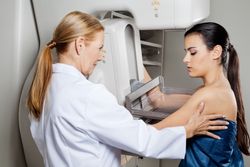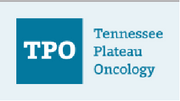A Guide to BRCA1 & BRCA2 Genetic Mutations

If breast cancer runs in your family, you may be thinking about being tested for the BRCA1 and BRCA2 genetic mutations. You may have concerns about what testing positive could mean for your health and questions about how to lower your risks of developing breast cancer. Here’s what you need to know about these genetic factors.
Understanding Breast Cancer Gene Mutations
What Are BRCA1 & BRCA2 Mutations?
BRCA1 and BRCA2 are genes responsible for suppressing tumor development in breast tissue. However, if you have these mutations, the genes may not effectively suppress abnormal growth, significantly raising your risk of testing positive for breast cancer.
For instance, although most women have a 12% chance of developing breast cancer sometime in their lives, a woman with the BRCA1 mutation has a 72% chance of developing the disease. The risk for women with BRCA2 mutations is 69%.
 These mutations also raise your risk of developing ovarian cancer. Women with BRCA1 mutations have a 44% chance of developing ovarian cancer before the age of 80, and BRCA2 mutations raise your risk to 17%. Those without either mutation have only a 1.3% chance of developing it.
These mutations also raise your risk of developing ovarian cancer. Women with BRCA1 mutations have a 44% chance of developing ovarian cancer before the age of 80, and BRCA2 mutations raise your risk to 17%. Those without either mutation have only a 1.3% chance of developing it.
How Can You Limit Your Risk?
Get tested for BRCA1 and BRCA2 to understand your risk of developing breast or ovarian cancer. If your risk is high, some insurance companies will pay for more frequent screenings—either mammograms or ultrasounds—and additional preventative checkups with your doctor. By detecting breast tumors early, you have a much higher chance of a successful medical outcome.
Whether you’ve been recently diagnosed with breast cancer or have been living with the illness for some time, Tennessee Plateau Oncology – Dirk Davidson M.D. in Crossville, TN, will help treat and manage your case. For more than 17 years, these professionals have been assisting patients with chemotherapy, radiation, cutting-edge oral treatments, and nonmalignant issues like osteoporosis. To find out more about how their staff will help you, visit them online, or give their office a call at (931) 484-7596 to schedule a screening.
About the Business
Have a question? Ask the experts!
Send your question

